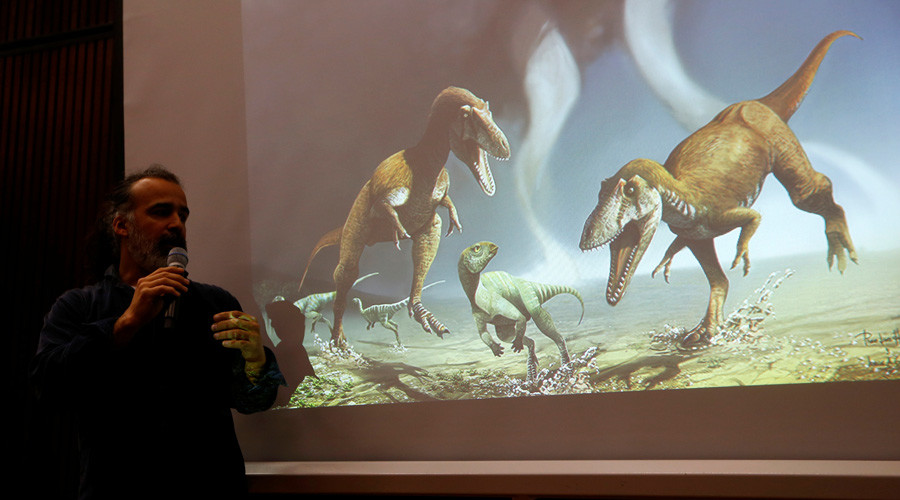Scientists working in Argentina discovered a new species of dinosaur, naming it Gualicho. Meaning bad luck or a demon of local folklore, the name reflects the misfortune the scientists experienced on their trip, as well as the dinosaur’s strange body.
For eight years, one Argentine farmer resisted allowing a group of scientists to visit his sheep field in Argentina’s Patagonia region. But once he relented, a team of scientists working with the Azara Foundation discovered a new dinosaur that dates back 90 million years, according to Rt.
The creature’s full name is Gualicho shinyae. Gualicho for the misfortune experienced on the trip that included a flipped truck, and shinyae after Akiko Shinyae – the discoverer of the fossils on a 2007 dig, according to the Chicago Tribune.
The dinosaur is notable for a few things. First, it has a very strange and silly looking body. The thousand pound (453.6 kg) creature stood six-feet tall or higher, with long, lean legs that scientists believe may have made it an extremely fast runner. However, its arms could belong on a human child’s body. With a puny reach, the Gualicho is believed to have relied on its jaws to grab prey, scientists say.
James Clark, a paleontologist with George Washington University who is unaffiliated with the study, told USA Today that these dinosaurs “were doing a lot of interesting things with their hands.”
“This shows there’s more going on than we thought,” he added.
The second unusual thing about the dinosaur is that scientists are having a hard time figuring out where it belongs in history. While they can trace it back to the Late Cretaceous period, the Gualicho’s body places it in a unique category of two-legged predatory dinosaurs.
Our new friend Gualicho is believed to belong to the group called theropods, which include tyrannosaurs, velociraptors and other two-legged carnivores. However, while the Gualicho’s arms are similar to a T. Rex, they are believed to be only distant relatives.
“This animal and T. rex didn’t evolve from a short-armed ancestor. Their ancestor had longer arms,” said co-author Nathan D. Smith to the Guardian.
Earlier ancestors of the T. Rex date back to 165 million years ago. That prototype theropod had longer arms and three digits, yet by the time the Late Cretaceous period rolled around some 80 million years later, the arms had shortened and a finger was phased out.
H.Z

